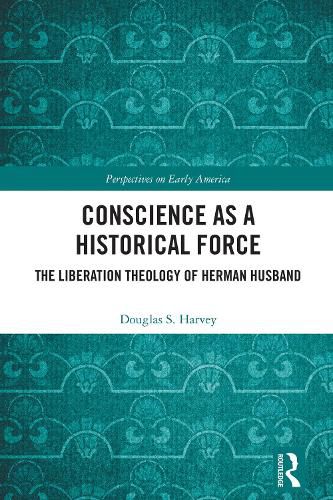Readings Newsletter
Become a Readings Member to make your shopping experience even easier.
Sign in or sign up for free!
You’re not far away from qualifying for FREE standard shipping within Australia
You’ve qualified for FREE standard shipping within Australia
The cart is loading…






Conscience as a Historical Force is the first true analysis of the life and thought of the radically democratic eighteenth-century backcountry figure of Herman Husband (1724-1795) and his heavily metaphorical political and religious writings during the "Age of Revolution."
This book addresses the influence of religion in the American revolutionary period and locates the events of Herman Husband's life in the broader Atlantic context of the social, economic, and political transition from feudalism to capitalism. Husband's metaphorical reading of the Bible reveals the timeless nature of his message and its relevance today. Other studies of Herman Husband fail in this regard even though, this book argues, this is the most valuable lesson of his life. The debate over the importance of religion in the American Revolution has neglected its connection with both the English radicals of the seventeenth century and continental religious radicals dating back further still. Essentially, the "antinomian" movement, where individuals refused to acknowledge any power greater than that of their own conscience, was Atlantic in scope and dates to the origins of Christianity itself.
With a chronological approach, this study is of great use to students and scholars interested in the politics and religion of eighteenth-century America.
$9.00 standard shipping within Australia
FREE standard shipping within Australia for orders over $100.00
Express & International shipping calculated at checkout
Conscience as a Historical Force is the first true analysis of the life and thought of the radically democratic eighteenth-century backcountry figure of Herman Husband (1724-1795) and his heavily metaphorical political and religious writings during the "Age of Revolution."
This book addresses the influence of religion in the American revolutionary period and locates the events of Herman Husband's life in the broader Atlantic context of the social, economic, and political transition from feudalism to capitalism. Husband's metaphorical reading of the Bible reveals the timeless nature of his message and its relevance today. Other studies of Herman Husband fail in this regard even though, this book argues, this is the most valuable lesson of his life. The debate over the importance of religion in the American Revolution has neglected its connection with both the English radicals of the seventeenth century and continental religious radicals dating back further still. Essentially, the "antinomian" movement, where individuals refused to acknowledge any power greater than that of their own conscience, was Atlantic in scope and dates to the origins of Christianity itself.
With a chronological approach, this study is of great use to students and scholars interested in the politics and religion of eighteenth-century America.